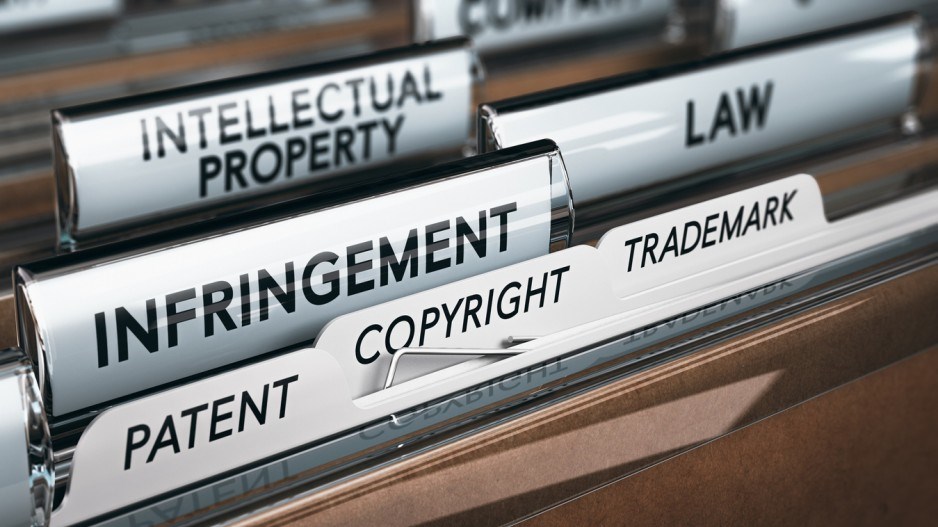“This is a major decision, and the court’s conclusion regarding the applicability of tariffs will have a profound effect on the manner in which institutions and collective societies approach tariffs established by the Copyright Board,” Vancouver lawyers Michal Jaworski and David Bowden said in a commentary.
“The effects could continue to influence the manner in which educational institutions license materials for use by their students.”
But, stressed Jaworski in an interview, the decision doesn’t much affect creators. Rather, he said, it means organizations such as CCLA need to do a better job at marketing what they provide in order to gain customers.
The unanimous decision came in a long-simmering battle between York University and the CCLA, also known as Access Copyright.
When licence renewal negotiations between York and the agency were stalled, the latter applied to the Copyright Board of Canada for an interim tariff covering copying of copyright protected works in post-secondary educational institutions. The request was granted.
York complied briefly but then opted out, introducing guidelines for faculty and staff thus beginning wrangling through various courts.
CCLA is a collective society that licenses and administers reproduction rights in published literary works on behalf of creators and publishers.
From 1994 to 2010, a licence agreement permitted professors at York to make copies of published works in CCLA’s repertoire and set the applicable royalties.
However, the high court said tariffs set by the copyright board are not mandatory, that a collective society such as the CCLA cannot enforce them against a user who chooses not to be bound by them.
Further, the court said, relevant Copyright Act provisions do not provide a collective infringement remedy for CCLA.
“Where Parliament sees fit to create a mandatory duty to pay, it generally does so with clear and distinct legal authority showing that this was its intent,” the Supreme Court said. “There is no such language creating a duty to pay approved royalties to a collective society that operates a licensing scheme anywhere in the Copyright Act.”
“A collective society is required to provide licences pursuant to the terms of an approved tariff, but the licence cannot be forced on a user. A user is entitled to obtain its rights through other means and, if the user makes an unauthorized use, the appropriate remedy is an action for infringement, the court said. “While Access’s inability to initiate infringement actions as a non‑exclusive licensee may cause it difficulties, this is the consequence of its freely chosen contractual arrangements with its members.
“A tariff therefore binds the collective society in setting a maximum amount for rates, but does not bind a user to pay compensation under the tariff,” Jaworski and Bowden said in a commentary.
CCLA president Roanie Levy said the case was about remedying “significant and sustained economic harm to creators and publishers caused by the mass, systemic and systematic copying of their works without compensation by the education sector under self-defined fair dealing guidelines.”
The CCLA asserted that while the high court decision does not dispute the harm, it declines to remedy it. “After almost 10 years of litigation and economic harm to the writing, visual art and publishing sector, creators are still left fighting for fair compensation for the use of their works by educational institutions,” Levy said.
The association said the decision worsens the struggles of creators in the current market “where the imbalance in bargaining power does not lie with creators and their collectives, but with large institutions that brazenly abuse uncertainty in the law, push exceptions to the extreme and deprive creators of their just reward.”
And, Levy said, the ruling marks the start of a more challenging environment for creators to manage and monetize their works in an increasingly digital environment.
“Canadian creators and publishers spend countless hours shaping and building the published material that inspire students," said Levy, who called on Parliament to amend the Copyright Act. "Educational institutions should be setting an example by respecting the work of others by fairly compensating creators for the use of their work.”
Several court decisions led to high court ruling
From 1994 to 2010, Access Copyright and York had a license agreement permitting professors to make copies of portions of textbooks and other published works under Access Copyright’s jurisdiction.
“By 2010, the annual royalty payable pursuant to that licence was $0.10 per page and $3.38 per full-time equivalent (FTE) student,” the Federal Court of Appeal said in July 2020.
But, in March 2010, when Access Copyright was uncertain of a licence renewal, it filed a proposed tariff with the board for post-secondary educational institutions covering the years 2011-2013. That proposed tariff contemplated a flat annual royalty of $45 per FTE student per year.
As the licence expiry approached, Access Copyright applied to the board for an interim decision. On Dec. 23, 2010, the board granted the application, issuing an interim tariff, rate of $0.10 per page and $3.38 per FTE.
York soon opted out.
“Since 2011, several other Canadian universities have also decided to opt out of the Access Copyright tariff,” the Federal Court of Appeal said.
The case eventually found its way to the Federal Court, which found legislative history and statutory interpretation led to the conclusion that board tariffs are mandatory.
York appealed that decision, leading to the federal court appeal ruling. That court did, however, rule that York’s own guidelines for use of copyrighted materials did not meet Supreme Court of Canada guidelines.
The top court dismissed appeals from both CCLA and York.
twitter.com/jhainswo


